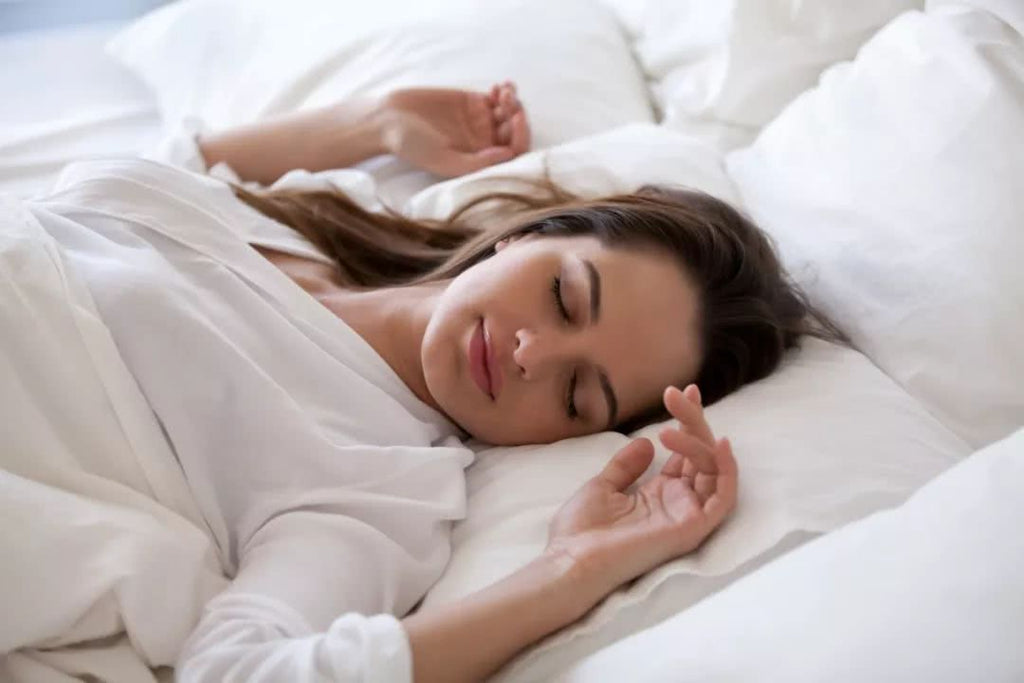Does Sleeping In Make Up for Sleep Deprivation?

According to Harvard Medical School, most adults need seven to nine hours of sleep daily on average in order to experience optimal health and performance. Unfortunately, most people squeak through the workweek falling far short of the nightly sleep goals with plans to make that sleep up on the weekend. New evidence suggests that might not be as simple of a proposition as it was once believed to be.
Can You Make up for Lost Sleep?
Conventional wisdom says that you can make up for sleep lost during the week by sleeping in on Saturday or Sunday. Science, though, has a different story to tell. While there may be some benefits for getting extra sleep on the weekend, the benefits aren’t as widespread or far reaching as many people believe them to be.
The good news is that there are benefits to gain by sleeping extra hours on the weekend. However, a weekend is only two days and most people lose sleep all five of the weekdays in which they work – leaving a sleep deficit remaining.
A recent study, entitled The Effects of Recovery Sleep After One Workweek of Mild Sleep Restriction on Interleukin-6 and Cortisol Secretion and Daytime Sleepiness and Performance, conducted by Penn State University College of Medicine, made some surprising discoveries about the body’s ability to make up for lost sleep.
The study involved 30 subjects who functioned on a sleep-restricted schedule mimicking a workweek, followed by a weekend of additional rest or “recovery sleep.” Throughout the test period, the subjects were given various tests to examine health and performance.
Several test categories, including sleepiness and inflammation, increased significantly during periods of sleep deprivation, while returning to normal after the recovery sleep.
The stress marker hormones, surprisingly, did not change during periods of less sleep, however, they were significantly lower in periods following additional sleep. The performance tests designed to measure attention to detail deteriorated during the sleep restriction, but did not recover after the weekend of recovery sleep. This suggests that it does require more than a single weekend to make up for the lost sleep most adults experience in a typical workweek.
Why is Sleep so Important?
There are so many things that sleep does for your body. Your body recovers from the day while you sleep. Without an adequate amount of sleep your body doesn’t have time to restore and replenish, let alone undo the damage your body experiences in a typical day from exposure to the sun, the foods you eat, the allergens and germs you encounter, and more.
Chronic fatigue is also associated with many negative health conditions including diabetes, weight gain, heart disease, and stroke.
Getting an adequate amount of sleep is one of the most important things you can do for your overall health and well-being, not to mention job performance and functionality. If you’re not getting enough quality hours of sleep each night, it’s time to explore options such as investing in a new latex mattress, removing electronics from the bedroom, and even deep cleaning to clear out the clutter and remove distraction from your bedroom.
Link to Us!
If you found this article useful and shareable, please copy and paste the following into the html code of your website or blog:
Learn More About Going Green at the <a href="https://www.plushbeds.com/blogs/green-sleep/does-sleeping-in-make-up-for-sleep-deprivation">PlushBeds Green Sleep Blog</a>.
*Please note that we DO NOT accept guest blog posts. Any inquiries into this will be respectfully left unanswered.
The post Does Sleeping In Make Up for Sleep Deprivation? appeared first on PlushBeds Green Sleep Blog.
